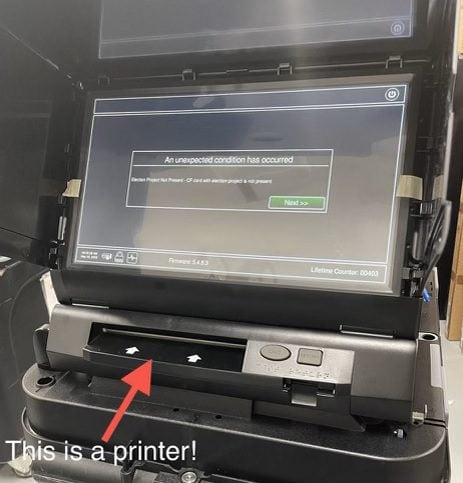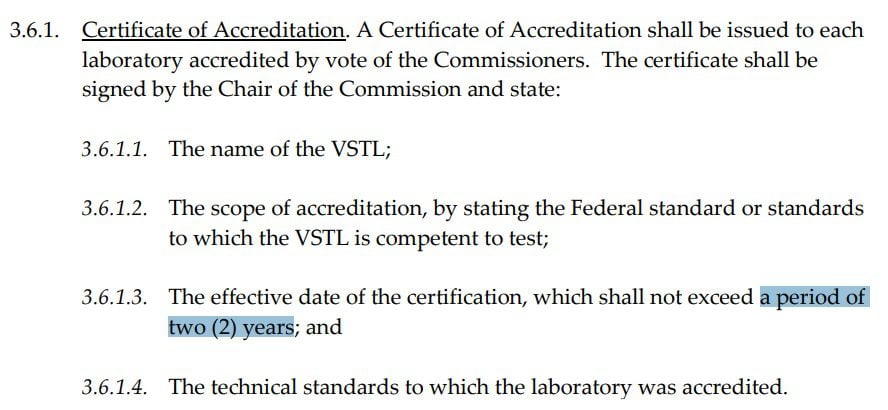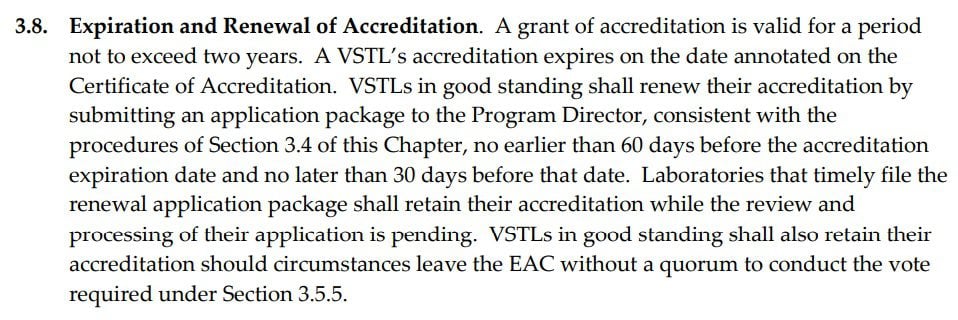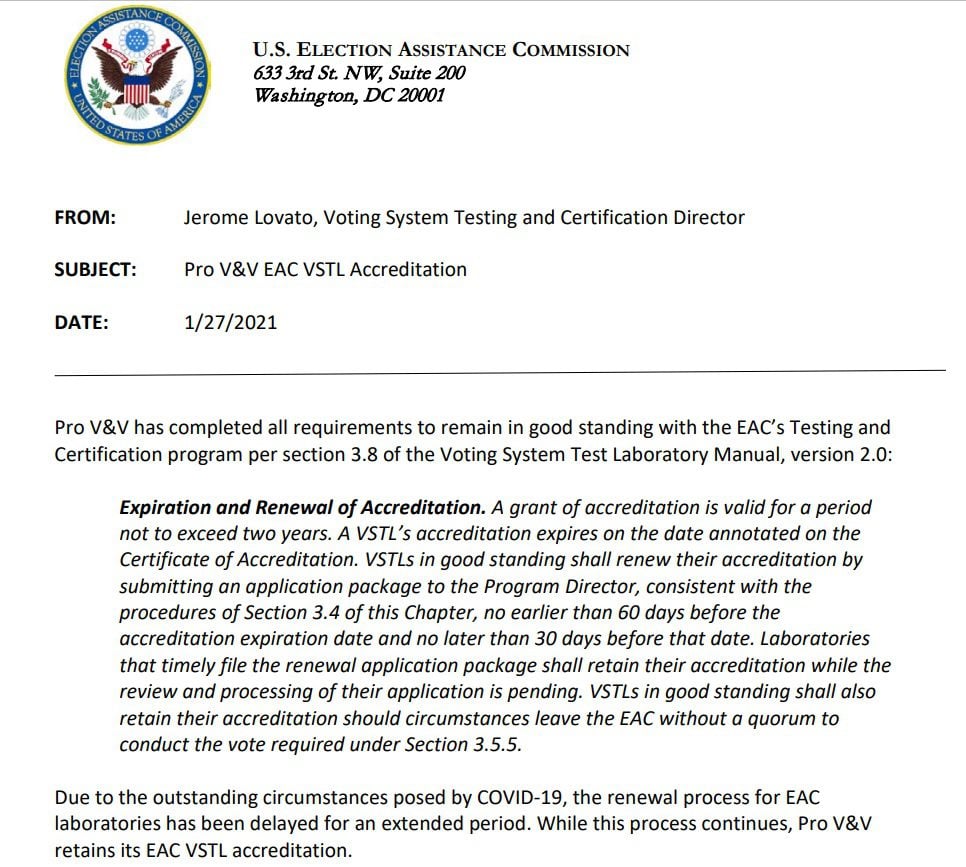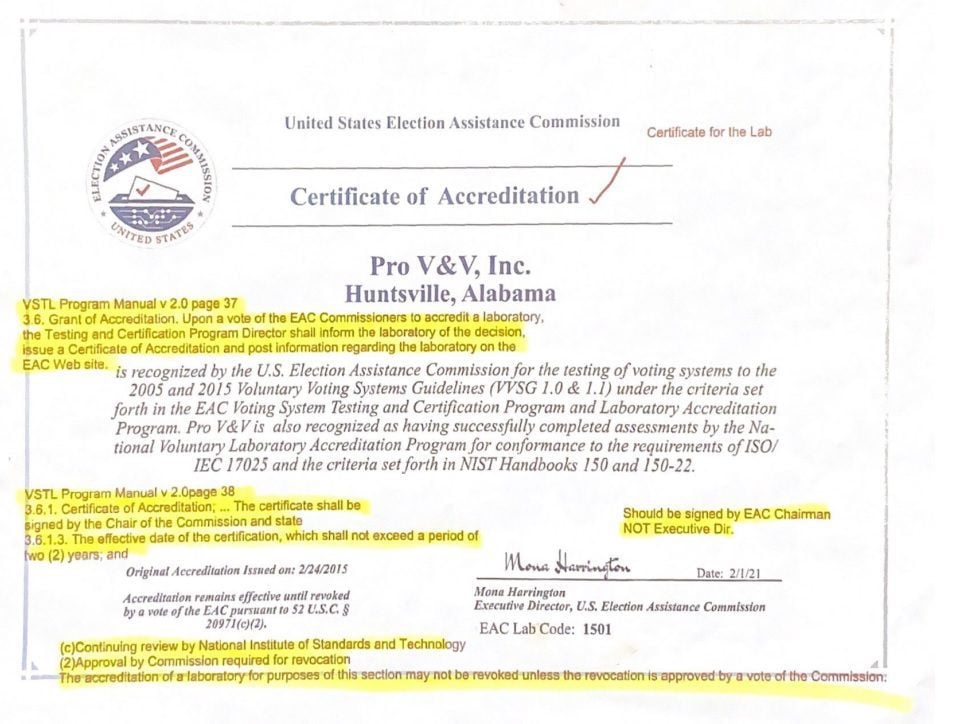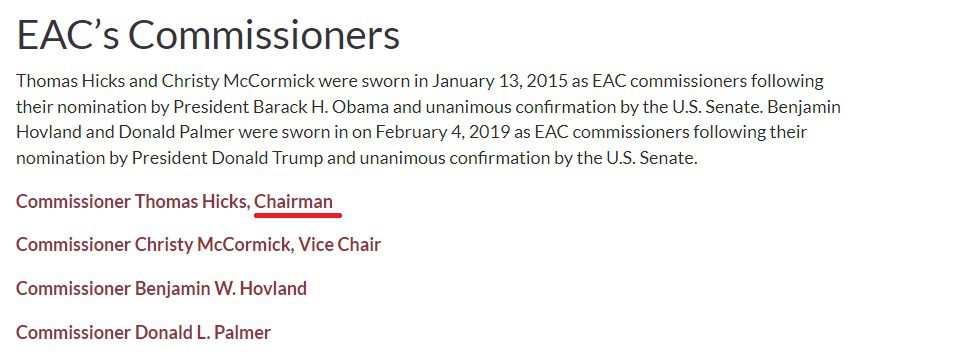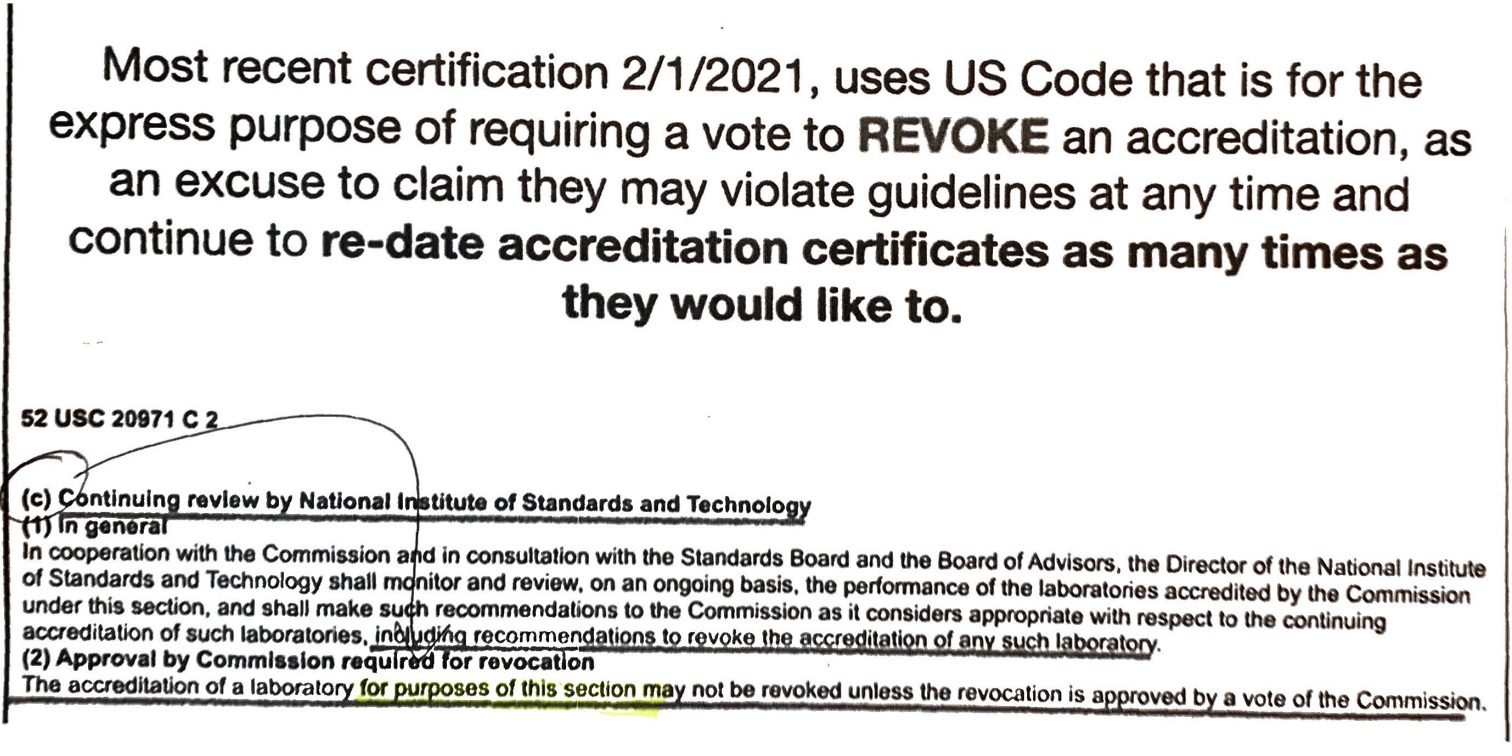Per a thorough review of election regulations, not a single election voting machine in the 2020 election was certified by an accredited voting machine company according to US law.
The issue of whether US voting machines and voting machine auditors were properly accredited leading up to and after the 2020 Election has been previously addressed by The Gateway Pundit. We first addressed this issue when the Maricopa County leadership only wanted a ‘certified auditor’ to perform an audit of their operations after the 2020 Election in Arizona. The County selected two firms and TGP pointed out that the two firms selected were not properly certified at the time. This was despite statements by Maricopa officials. Only hours after our report, the Election Assistance Commission (EAC) suspiciously certified the two firms we identified.
But this was apparently just the tip of the iceberg.
Voting laws changed in the US in 2002 after the 2000 Election:
The Help America Vote Act (HAVA) of 2002 was passed by the United States Congress to make sweeping reforms to the nation’s voting process. HAVA addresses improvements to voting systems and voter access that were identified following the 2000 election. Read the Help America Vote Act of 2002
HAVA creates new mandatory minimum standards for states to follow in several key areas of election administration. The law provides funding to help states meet these new standards, replace voting systems and improve election administration. HAVA also established the Election Assistance Commission (EAC) to assist the states regarding HAVA compliance and to distribute HAVA funds to the states. EAC is also charged with creating voting system guidelines and operating the federal government’s first voting system certification program.
HAVA directed the National Institute of Standards and Technology (NIST) to support the EAC in its accreditation of laboratories:
The Help America Vote Act (HAVA) of 2002 directs the National Institute of Standards and Technology (NIST) to support the U.S. Election Assistance Commission (EAC) in its accreditation of laboratories qualified to conduct the testing, certification, decertification, and recertification of voting systems as provided under the act. NIST processes for carrying out this responsibility are as open and transparent as possible to facilitate the public’s understanding of how laboratories that test voting systems are evaluated.
When the NIST evaluates laboratories to assess whether they can be accredited or not, the NIST relies on the National Voluntary Laboratory Accreditation Program (NVLAP) to determine competency. An on-site review of the lab is to take place and the lab is to demonstrate competency in performing multiple tasks in a voting system review.
The EAC and NIST work closely together when assessing and providing accreditation of voting system labs that can test systems against federal standards.
Section 231(b) of the Help America Vote Act (HAVA) of 2002 (42 U.S.C. §15371(b)) requires that the EAC provide for the accreditation and revocation of accreditation of independent, non-federal laboratories qualified to test voting systems to Federal standards. Generally, the EAC considers for accreditation those laboratories evaluated and recommend by the National Institute of Standards and Technology (NIST) pursuant to HAVA Section 231(b)(1). However, consistent with HAVA Section 231(b)(2)(B), the Commission may also vote to accredit laboratories outside of those recommended by NIST upon publication of an explanation of the reason for any such accreditation.
In order to meet its statutory requirements under HAVA §15371(b), the EAC has developed the EAC’s Voting System Test Laboratory Accreditation Program. The procedural requirements of the program are established in the proposed information collection, the EAC Voting System Test Laboratory Accreditation Program Manual. Although participation in the program is voluntary, adherence to the program’s procedural requirements is mandatory for participants. The procedural requirements of this Manual will supersede any prior laboratory accreditation requirements issued by the EAC. This manual shall be read in conjunction with the EAC’s Voting System Testing and Certification Program Manual (OMB 3265-0019).
The first manual mentioned in the paragraph above, the EAC Voting System Test Laboratory (VSTL) Accreditation Program Manual says the Chair of the Commission must sign off on the VSTL’s accreditation and the accreditation shall not exceed 2 years.
The manual also states that VSTLs must renew their accreditation timely every 2 years.
Looking back at the accreditation process for the Voting System Test Labs (VSTL) used in Maricopa County noted a year ago, the labs selected were not accredited when selected by the county (Pro V&V and SLI). Per the EAC’s website, these are the only two VSTLs accredited today.
The letter the EAC provided on its site as noted in our article above still wasn’t an accreditation of Pro V&V. It was an excuse letter for why the EAC had not accredited these VSTLs. The EAC claimed they hadn’t accredited Pro V&V because of COVID.
A couple of days after the letter above was provided online, Pro V&V and SLI were given their accreditation. See Pro V&V’s accreditation below (highlighted issues discussed below).
SLI’s accreditation is below.
These documents have multiple issues with them indicating they are still NOT in compliance with laws and guidelines (see highlighted notes in documents above).
1. These accreditations were not signed by the Chair of the Commission. These letters were signed by an EAC Executive Director, Mona Harrington. The Chair is Thomas Hicks. Mona Harrington has never been a commissioner.
2. These accreditations should not exceed 2 years and yet the EAC omits any ‘effective through’ date in these documents. This date is not required by law but does indicate when the accreditation lapses.
3. The EAC identifies the original accreditation on these documents. In doing this the EAC admits that these VSTLs were out of compliance up to these documents being initiated. Pro V&V was last accredited through February 24, 2017, and SLI was accredited through January 10, 2021, but SLI’s accreditation was for a 3-year term (can only be a 2-year term) and that document was not signed by the Commission Chairman, both of which are required (see below). This means that no VSTLs were properly accredited for the 2020 Presidential election on November 3, 2020.
4. The EAC includes in the 2021 accreditation documents wording as follows “Accreditation remains effective until revoked by a vote of the EAC pursuant to 52 U.S.C 20917(c)(2).” This is added apparently to claim that these labs that were out of compliance never lost their accreditation but this is not the case. We’ve added wording to the bottom of the February 2021 documents above that is identified by the EAC.
But the EAC takes this regulation out of context to cover up its wrongdoing. The regulation that the EAC uses is in reference to the continuation review only. The EAC uses this as a broad brush to claim VSTLs are accredited until their accreditation is revoked. But the regulations clearly state that the accreditation is for 2-year periods only. EAC’s use of the section below is disingenuous as the wording added applies to this section only.
Although Pro V&V and SLI are the only VSTLs accredited today, there was another lab ‘accredited’ in the past, Wyle Labs. We’ll share more on this lab in our next report on these EAC labs.
Hat tip to Ali Graef who is running for Missouri State Representative – see NoMOFraud.com


